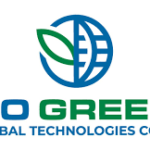Another Micro-Cap ETF to Consider in 2012
 In our previous examination of micro-cap exchange traded funds (ETFs), we highlighted the PowerShares Zacks Micro Cap ETF (NYSE: PZI), noting this well-established was one of just a three ETFs that are exclusively devoted to tracking stocks with the micro-cap designation. We also noted that when traversing into the micro-cap universe, investors face a trickier environment than they do even with small-caps. And it goes without saying that finding the right bets to make in the micro-cap arena is far more difficult than it is with large-caps.
In our previous examination of micro-cap exchange traded funds (ETFs), we highlighted the PowerShares Zacks Micro Cap ETF (NYSE: PZI), noting this well-established was one of just a three ETFs that are exclusively devoted to tracking stocks with the micro-cap designation. We also noted that when traversing into the micro-cap universe, investors face a trickier environment than they do even with small-caps. And it goes without saying that finding the right bets to make in the micro-cap arena is far more difficult than it is with large-caps.
Along those lines, we praised the utility of the PowerShares Zacks Micro-Cap ETF as a viable option for investors looking to get exposure to micro-caps without having to do the leg-work of actual stock-picking. Today, we’re going to look at the iShares Russell Microcap Index Fund (NYSE: IWC) as another ETF option for micro-cap investors.
Largest and oldest deserves consideration
Not a bad idea considering the iShares Russell Microcap Index Fund is the largest and oldest of the micro-cap ETFs. When we covered PZI, we noted the ETF has about $32 million in assets under management and an expense ratio of 0.7%. Well, cost-conscious investors might want to have a look at the iShares Russell Microcap Index Fund because the ETF has a slightly lower expense ratio at 0.67% and if you’re concerned with an ETF’s size, then IWC’s $398.3 million in assets under management certainly look stellar when compared to PZI’s AUM total.
Of course, we cannot forget to tell you that in the past year, PZI is down almost 14% while IWC is down less than 10% over the same time frame. You might recall that we touted PZI’s diversity as the ETF is home to 400 stocks from 10 different sectors. If you like that, then you’ll just love IWC. The iShares offering is home to a whopping 1,395 stocks from nine different sectors.
To this point, it would seem as though we’re quite bullish on IWC, but there’s no such thing as a perfect trade and IWC is no exception. Said differently, there are some issues that investors need to be cognizant of before jumping into this ETF. First, this is not an ETF for conservative investors. If you consider health care, staples and utilities stocks “conservative” plays, those sectors account for just about 23% of IWC’s weight.
On the other hand, financials alone receive an allocation of over 27%. Beyond that, IWC is heavy on tech stocks and companies that are the definition of consumer cyclical names. Then again, traders that aren’t all that active probably find little allure in micro-caps and that’s alright. For those active traders reading this piece, believe us when we tell you that IWC is a great ETF for swing-trading. The average daily volume of almost 84,000 shares is good for this type of ETF, but not great for day-traders.
Conclusion: That said, IWC’s beta of almost 1.25 and an average true range of almost one result in some nice moves from this ETF over multi-day holding periods. Not to mention, IWC’s chart is improving. The ETF is less than 3% below its 200-moving average and if it can reclaim that level and move beyond resistance at $48, IWC could offer upside 10%-12% or more from there.
Posted by Micro Trader






